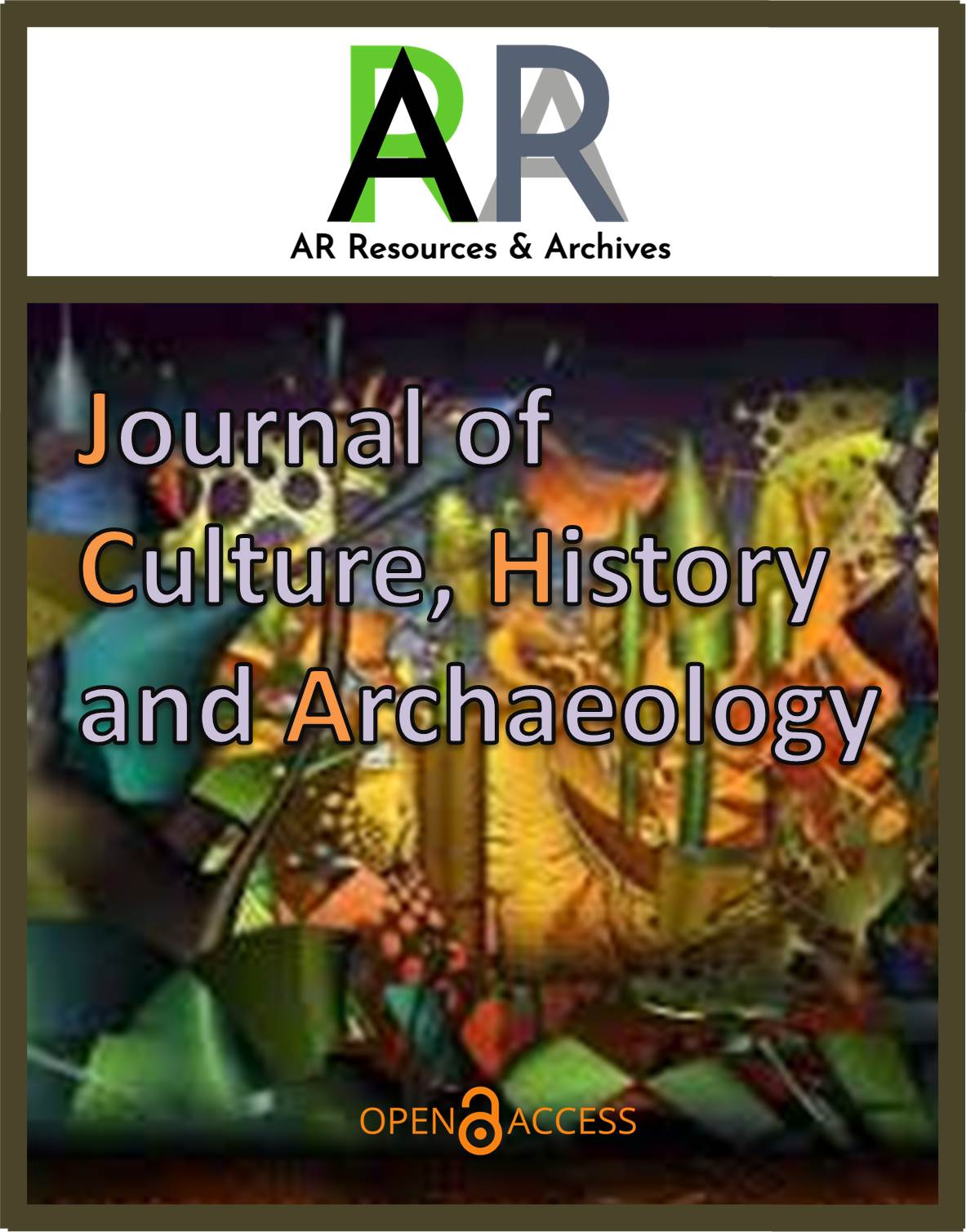Full Length Research Paper
Malefic Magic in the Greek Curse Tablets of the Classical Period and in the “Curse Effigies” of Ala deity of African Traditional Religion (ATR)
Rowland Onyenali and Cletus O. Obasi
Article Number - 663E97CB9B89F | Vol. 4(2), pp. 12-21, May 2024 |
Received: 10 March 2024 | Accepted: 29 April 2024 | Published: 13 May 2024
Copyright © 2024 Author(s) retain the copyright of this article.
This article is published under the terms of the Creative Commons Attribution License 4.0.

Abstract
The human effort to manipulate the
spiritual world and achieve supernatural effects through the use of magic or
mystical forces is as old as the human race. This practice also cuts across
many religions and cultures of the world. Sometimes it is done through the use
of charms, incantations, casting of spells, the burning of different kinds of
spiritual objects, the wearing of amulets or the use of curse tablets. Although
the primary aim of this sort of spiritual manipulation may be to protect the
person engaged in them from harmful spiritual forces, such practices have given
rise to various kinds of occult exercises some of which aim at bringing harm to
perceived enemies or detractors of the supplicant. This is mostly done through
the use of curse tablets in some traditions. The paper seeks the lines of
agreement and difference between the use of Greek curse tablets and
incantations to manipulate the spiritual forces and the use of such spells in
the shrine of Ala deity in Igboland,
South-East Nigeria. Keywords: Ala deity, ATR, Curse tablets, Effigies, Greek
Religion, Igboland, Shrine.
References
Achebe, C. (2006). Things Fall Apart. London: Penguin Classics.
Achunike, H. C. (1995). Dreams of Heaven: A Modern Response to
Christianity in North Western Igbo Land 1970-1990. Enugu: Snaap.
Brodman, B. &
Doan, J. E. (eds.). (2016). The Supernatural Revamped: From Timeworn
Legends to Twenty-First-Century Chic. Fairleigh: Dickinson University
Press.
Burkert, W. (1985). Greek Religion, John Raffan (Trans.).
Cambridge/Massachusetts, Harvard University.
Dickie, M. W.
(2000). Who Practised Love-Magic in Classic Antiquity and in the Late Roman
World? The Classical Quarterly, New Series, 50(2), 563-583. https://doi.org/10.1093/cq/50.2.563
Edeh, E. (1985). Towards Igbo Metaphysics. Chicago: Loyola
University.
Faraone, C. A.
(1991). Binding and Burying the Forces of Evil: The Defensive Use of
"Voodoo Dolls" in Ancient Greece. Classical Antiquity 10(2),
165-205. https://doi.org/10.2307/25010949
Faraone, C. A. (1999). Ancient Greek Love Magic. Cambridge, MA:
Harvard University.
Ferguson, E.
(2003). Backgrounds of Early Christianity, 3rd ed. Grand
Rapids/Michigan, William B. Eerdmans.
Fowler, H. N.
(Trans.). (1921). Plato in Twelve Volumes, Vol. 12. Cambridge/MA:
Harvard University.
Gager, J. G. (1992). Curse Tablets and Binding Spells from the
Ancient World. New York: Oxford University.
Grimes, J. (2016). Letters to the Underworld: The Religious Context of
Classical Greek Katadesmoi, Journal of Undergraduate Research,
University of North Carolina Asheville, 147-159.
Ikenga-Metuh, E. (1970). Concept of God in Africa. London:
Camelot.
Ikenga-Metuh, E. (1981). God and Man in African Religion: A Case
Study of Igbo of Nigeria. London: G. Chapman.
Ikenga-Metuh, E. (1987). Comparative Studies of African Traditional
Religion. Onitsha: IMICO.
Jordan, D. R. (1985). A Survey of Greek Defixiones not Included in the
Special Corpora. Greek, Roman and Byzantine Studies 26(2),
151–197. https://grbs.library.duke.edu/index.php/grbs/article/view/5281/5347
Kanu, I. A. (2002).
Ala Deity in Igbo-African Religion and Environmental Sustainability, In
Ikechukwu A. Kanu (ed.), African Eco-Theology: Meaning, Forms and
Expressions. Bloomington, Authorhouse.
Lucian, Philoseudes,
as quoted in Georg Luck. (1985). Arcana Mundi: Magic and the Occult in the
Greek and Roman Worlds. Baltimore: The Johns Hopkins University Press.
Mbiti, J. S. (1985). African Religion and Philosophy. London:
Heinemann Educational.
Mbiti, J. S. (1991). Introduction to African Religion (2nd
ed.). Portsmouth, N.H and London: Heinemann Education.
Miller, P. C. (1994). Dreams in Late Antiquity: Studies in the
Imagination of a Culture. Princeton University Press, Princeton.
Ogbaa, K. (1999). Understanding Things fall apart: A Student Casebook
to Issues and Historical Documents. Wesport: Greenwood.
Ogbalu, F. C. & Emenanjo E. (eds.). (1975). Igbo Language and
Culture. Ibadan: Oxford University Press.
Ogden, D. (2002). Magic,
Witchcraft and Ghosts in the Greek and Roman Worlds: A Sourcebook. Oxford:
Oxford University.
Onyenali, R. (2013). Appraising the Nigerian Problem through
Education and Religious Dialogue: A Cognitive Approach, European University
Studies, Vol. 1032. Peter Lang: Frankfurt am Maim.
Onyenali, R. (2019). Demonic Possession and Exorcism: A
Religio-Historical Study. Enugu: Clacom.
Onyeocha, I. M. (1997). Africa: The Question of Identity. Washington DC: Council for Research in Values and Philosophy.
Udoye, E. A. (2011). Resolving the prevailing Conflicts between
Christianity and African (Igbo) Traditional Religion through Inculturation.
Wien/Berlin: Lit.
Authors
Rowland Onyenali1* and Cletus O. Obasi2
1Department of
Religion and Cultural Studies, Spiritan International School of Theology,
Attakwu, Enugu, Nigeria.
2Department of
Religion and Cultural Studies, Faculty of Social Sciences, University of
Nigeria, Nsukka, Nigeria.
How to Cite this Article
Onyenali, R. &
Obasi, C. O. (2024). Malefic Magic in the Greek Curse Tablets of the Classical
Period and in the “Curse Effigies” of Ala
deity of African Traditional Religion (ATR) Journal
of Culture, History and Archaeology, 4(2), 12-21.
Full-Text (PDF)
View / DownloadBack to Articles
Back to Journals
ISSN: 2971-7752 (Online)
DOI:
Start Year: 2021
Published Articles: